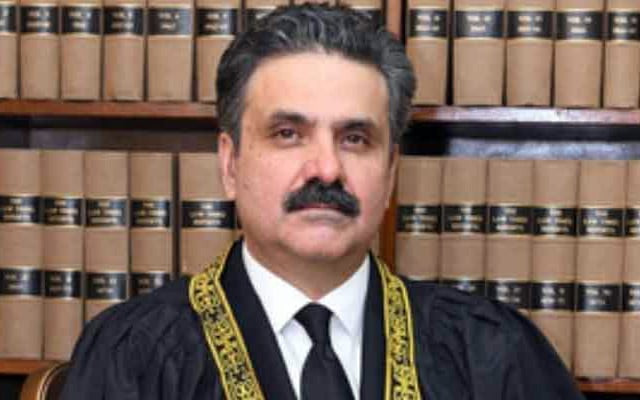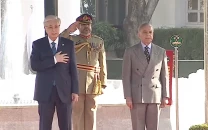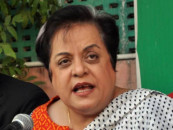Parliamentary committee approves Yahya Afridi's nomination as CJP with two-thirds majority
PTI confirmed their decision to boycott the committee, citing dissatisfaction with the process

The special parliamentary committee responsible for appointing Pakistan’s next Chief Justice has approved the nomination of Justice Yahya Afridi with a two-thirds majority, forwarding his name to the prime minister for final approval.
The decision came after a meeting lasting over an hour and a half, attended by the committee members on Tuesday.
The Speaker of the National Assembly, Sardar Ayaz Sadiq, had also hosted a dinner for the members of the committee.
The parliamentary committee was formed to select the country’s top judicial position, but its proceedings were initially marred by the absence of key members.
Earlier, representatives from Pakistan Tehreek-e-Insaf (PTI) and the Sunni Ittehad Council confirmed their decision to boycott the committee, citing dissatisfaction with the process. This move delayed the selection of the next Chief Justice.
The decision not to participate was conveyed by PTI's Barrister Gohar Ali Khan following a meeting with parliamentary representatives in the speaker’s chamber. "We have made our decision. We will not be part of this committee's meetings," Khan confirmed after discussions. The committee, led by Speaker Sadiq, had previously tried to engage PTI members, hoping to involve them in the critical judicial selection process.
A four-member subcommittee was formed, consisting of Ahsan Iqbal, Rana Ansar, Raja Pervez Ashraf, and Kamran Murtaza, to negotiate with PTI. However, despite these efforts, the boycott persisted.
The boycott has significantly impacted the appointment process, as the parliamentary committee is tasked with finalising the selection for the Chief Justice role. The absence of PTI and Sunni Ittehad Council members has created further complications in the proceedings.
The committee initially postponed its meeting, which was set to discuss the three senior-most judges nominated for the position: Justice Mansoor Ali Shah, Justice Munib Akhtar, and Justice Yahya Afridi. These judges represent the most senior ranks of Pakistan’s Supreme Court, and one of them is expected to succeed the current Chief Justice, Qazi Faez Isa.
Despite the absence of PTI and Sunni Ittehad Council members, the committee pressed ahead with the judicial appointment process. The Secretary of Law and Justice presented the profiles and qualifications of the nominated judges, which included their legal careers, educational backgrounds, and timelines of their judicial appointments.
After reviewing the profiles, the committee approved Justice Yahya Afridi's nomination with a two-thirds majority and forwarded his name to the Prime Minister for final approval. Justice Afridi’s appointment is expected to proceed to the President for formalisation once approved by the Prime Minister.
This appointment marks a significant moment in Pakistan’s judiciary, as the process for selecting the Chief Justice has undergone recent reforms. Under the new system, the three senior-most judges are shortlisted, and the parliamentary committee is responsible for making the final selection. Previously, the senior-most judge would automatically assume the position of Chief Justice. The change is part of the government’s broader effort to reform judicial appointments, which has sparked concerns over judicial independence.
The boycott by PTI and the Sunni Ittehad Council reflects ongoing political tensions surrounding the Chief Justice’s appointment. PTI has voiced dissatisfaction with the judicial decisions that have gone against the party in recent months, leading to their reluctance to participate in the committee’s proceedings.



















COMMENTS
Comments are moderated and generally will be posted if they are on-topic and not abusive.
For more information, please see our Comments FAQ